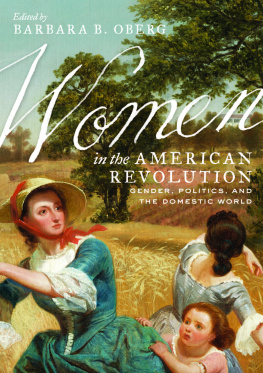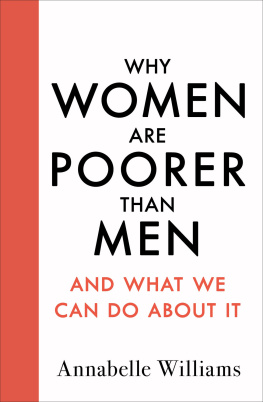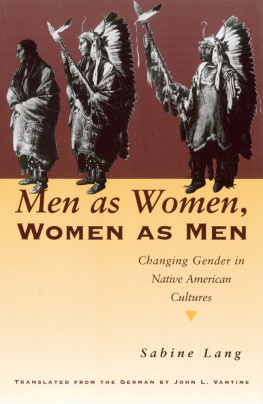Copyright 2002 by Leora Tanenbaum
All rights reserved. No part of this book may be reproduced, stored in a retrieval system, or transmitted in any form, by any means, including mechanical, electronic, photocopying, recording or otherwise, without the prior written permission of the publisher.
The excerpt A Woman of Valor, Proverbs 31:1029, on is taken from the Tanakh 1985 by the Jewish Publication Society. Used by permission.
Except for those who have given the author permission to use their names, the people quoted in this book have had their names changed. In a few instances, occupations and geographic locations have been changed to ensure anonymity. All ages and ethnicities remain unchanged.
A Seven Stories Press First Edition
Seven Stories Press
140 Watts Street
New York, NY 10013
www.sevenstories.com
In Canada: Hushion House, 36 Northline Road, Toronto, Ontario M4B 3E2
In the U.K.: Turnaround Publishing Services Ltd., Unit 3, Olympia Trading Estate, Coburg Road, Wood Green, London N22 6TZ
In Australia: Tower Books, 2/17 Rodborough Road, Frenchs Forest NSW 2086
Library of Congress Cataloging-in-Publication Data
Tanenbaum, Leora.
Catfight : women and competition / Leora Tanenbaum.
p. cm.
eISBN: 978-1-60980-125-0
1. WomenPsychology. 2. WomenSocial conditions. 3. Competition (Psychology)
I. Title.
HQ1206 .T215 2002
305.42dc21
2002005258
College professors may order examination copies of Seven Stories Press titles for a free six-month trial period. To order, visit www.sevenstories.com/textbook, or fax on school letterhead to (212) 226-1411.
v3.1
In memory of
SASSI LONNER
CONTENTS
INTRODUCTION
Competitiveness between women is a fact. It has a history and function in American society that does not benefit women. So why does it persist? And can we make it go away? Before tackling these questions we need to understand the role of competitiveness on a personal level.
Ive long been fascinated by the issue of competitiveness between women because Ive long been, well, competitive with other women. Growing up I wanted not only to get As, but to get more As than others. In junior high, when I developed an hourglass figure, I felt awkward about my burgeoning physique, but also good about getting more attention from the boys than the other girls did. In college I lived with a woman who possessed many traits I wanted in a friendshe was smart, witty, reflective, adventurousbut her beauty made her a magnet for men, plus she was talented as a journalist, a career I wished for myself. All of which led my envy to trump our friendship. My loss.
Another college friend now lives just blocks away from me, on Manhattans West Side. We each have young children and we work in similar professions. Only her apartment is a Friends-worthy classic six with a terrace overlooking Central Park; her little girls rarely fuss or whine; and her career (travel writer) is glamorous and gives her the opportunity to take expenses-paid vacations around the world. And, oh yes, she is beautiful; wears gorgeous, perfectly fitting, up-to-the-minute clothes; has a good-looking, successful husband; and never has a chipped manicure. She seems so perfect. I find it difficult to spend time with her.
When I was thirty, my husband and I decided to have a child, and I became pregnant. My status as Mother-To-Be was considered open for discussion by every woman I knew. Even strangers on supermarket checkout lines felt totally at ease asking me: would I have an epidural, would I breast-feed, would I continue to work? My answersyes, Im not sure, yeselicited judgmental eyebrow raises, if not outright condemnations. Labor is supposed to feel like youre being ripped in two! Breast milk is best! Only a negligent mother would think of working before her child enters first grade, and even then a mother should only work part time! Feeling under attack, I began obsessing about the choices that other mothers made. To protect my fragile ego, I imagined that anyone who diverged from my path was a mindless baby machine without an ounce of ambition.
It was actually the most trivial part of my pregnancy that held particular fascination: the rate and size of my weight gain. I had gained too much too fast, I was told. Or, I hadnt gained enoughwas I one of those crazy, misguided women who actually diets while pregnant, thereby harming the health of the fetus?! I couldnt win with anyone. When youre pregnant and wearing the same five outfits over and over, it would be nice for others to compliment you on your looks, even if they dont really mean it. Of course, lots of women (and men) did indeed tell me that I looked glowing and happy and wonderful. But just as often, I experienced exchanges like this one, with a colleague:
You look so big; how far along are you?
Five and a half months, I mumbled.
Youre only five and a half months? Hmmm You know, my daughter gained only nine pounds during her entire pregnancy.
I declined to mention that with three and a half months to go, I had already surpassed her daughters total gain. Instead, I went immediately to the nearest womens room, which fortunately had a full-length mirror, stared at my out-of-control belly, and pondered my options if I outgrew my maternity clothes. Later, on the street, I saw another, larger pregnant woman. I reckoned the number of pounds she had gained, and felt better.
As you can see, I measure myself against other women. I constantly need to prove my worth, show everyone (especially myself) that I am capable, deserving, a woman who should be paid attention to. At some level, this is an expression of inadequacy. I worry I can never measure up. I am not smart, fashionable, thin, savvy, or maternal enough. The success of another woman translates into my failure. And my success translates into her failurewhich makes my success all the more sweet. Although I am a feminist, committed to the idea that every woman should be given the opportunity to succeed in whatever endeavor she chooses, there is also a part of me that feels reassured if a woman on the same playing field stumbles. Such behavior is damaging. It never soothes my anxieties and always wields the potential to harm my relationships with others.
Why dont I feel competitive with men? I discount them as true rivals because, in most arenas, they either have more power than I (such as in their ability to earn more money or to rise in their professions) or theyre not striving for the same things I am (such as being a good mother). I dont regard men as rivals because their successes in life have more to do with their privilege than with my failure.
For my own sanity, I needed to inspect the roots of my competitiveness. But I found that it was not my problem alone. Essayist Anne Taylor Fleming has perfectly expressed this problem faced by so many contemporary American women:
Whenever I enter a room of people these days, I am conscious that it is the women, not the men, who give me the once-over, a quick, slightly veiled, not entirely ungenerous instant appraisal. I look back at these women across the room as if it were empty of men. Who are you, our eyes say to one another, what joys and sorrows have you known, what do you do, where do you work, where do you buy your clothes, but mostly, mostly, we ask one another, are you successful, do you have what you want, do you have what I want? There then ensues a kind of amiable grilling, a sizing up, a comparing of husbands, children, childrens schools, numbers of miles run that day: the underlying question always: is she farther ahead than I?










